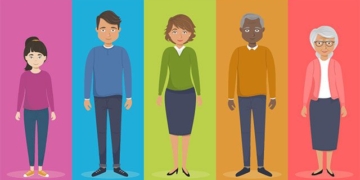Forget about installing discreet surveillance cameras; researchers in the UK have discovered a simpler and much cheaper solution to combat petty theft – that is, a picture of eyes.
 |
|
The feeling of being watched makes us try to do the right thing, researchers found. (Image: iStockphoto) |
The behavioral research team at Newcastle University in the UK conducted a covert experiment on their colleagues and found that people are more honest when “watched” by a pair of eyes on a poster.
In the experiment, Dr. Melissa Bateson and her colleagues used a box called the “honesty box,” which had been placed in a public room for 48 faculty members of the psychology department.
The instructors were required to put money in this box for tea, coffee, and milk they consumed without anyone supervising whether they actually paid or not. The honesty box had been there for many years, so the teachers had no suspicion that an experiment was going on.
Over a period of 10 weeks, the research team placed a poster above the box listing the prices of tea, coffee, and milk. The poster also featured an image at the top, which was changed weekly between pictures of flowers and pairs of eyes.
The eyes in the images varied in gender and gaze direction, but all were selected to look directly at the observer.
Each week, the team recorded the total amount of money collected and the amount of milk consumed, as this beverage was considered the best indicator of overall drink consumption. They then calculated the ratio of money collected to milk consumption for each week.
 |
|
Dr. Melissa Bateson (Image: staff.ncl) |
As a result, during the weeks when the “eyes” were looking down, the amount collected was 276% higher compared to the weeks when flower images were displayed.
“I was truly amazed by this effect; it shows how powerful the presence of eyes is on individuals consuming tea and coffee,” Bateson stated.
The researchers noted that the experiment demonstrated how people are strongly influenced by subconscious cues regarding behavior that may damage their reputation.
“Our brains are wired to respond to eyes and faces, whether we consciously pay attention to them or not,” Bateson remarked.
“Our findings indicate that people will display less selfishness if they feel they are being watched – a factor that could have significant implications in real life.”
“For instance, this method could be used to alert drivers about speed cameras. A sign depicting a camera would be processed by the brain actively as if it were an artificial stimulus. Meanwhile, drivers would react more quickly and positively to natural stimuli like eyes or faces.”
The research team hopes to expand their study to a larger group of individuals.
T. An


















































